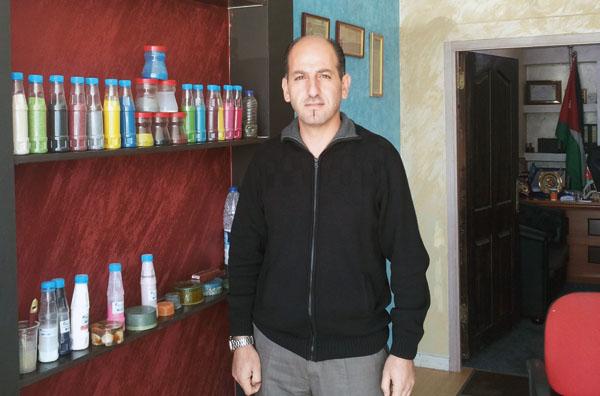You are here
Aid workers tell their stories on World Humanitarian Day
By Ana V. Ibáñez Prieto - Aug 20,2018 - Last updated at Aug 20,2018

The United Nations launched the #Notatarget campaign last year to raise awareness of the dangers for those who risk their lives in humanitarian service (Photo courtesy of UN website)
AMMAN — Aid workers have shared their stories on World Humanitarian Day, held annually on August 19 to honour humanitarian workers and civilians who have lost their lives while supporting humanitarian projects.
“We are not just refugees — we are people with the will to reform our nation, the civilians who carried their own dreams and still strive to continue to defend their rights,” said Muzoon Almellehan, a Syrian refugee from Daraa who started as an activist for education in the refugee camps of Jordan and later became a goodwill ambassador for UNICEF.
This year, the celebrations built on the momentum created by the 2017 #NotATarget campaign, which called on world leaders to take action to protect both civilians and humanitarian workers caught in conflict.
“I was injured by a bomb blast back in 2013, which damaged my spinal cord and paralysed me,” said Khaled Khattab, a Syrian volunteer at Doctors without Borders who fled to Jordan for treatment after the attack.
“We heard about organisations but we did not know what they offer, so I went from receiving assistance to becoming the middle man between the organisations and the physically challenged in order to adjust and develop those services,” Khattab recalled, explaining how today, he combines his humanitarian work in Jordan with his studies.
Resilient refugees like Almellehan and Khattab are supported by organisations such as Parachute 16, which provides them with business incubators and social innovation laboratories to come up with ideas aimed at overcoming their communities' challenges.
“We always point out that they are refugees or that we need to support them, but we must not forget that they are also talented and skilled enough to come up with solutions to overcome their challenges,” Parachute 16 founder Ghassan Halawa said, expressing his belief that “together we can build something different — an environment that protects the civilians in Jordan”.
Similar opportunities are offered to children through “I Learn”: An academic programme that supports refugees and local children in rural areas across the Kingdom to build their skills.
“We help children who show signs of psychological trauma whether as a result of war, displacement or not attending school,” volunteer Batool Al Masri explained.
For his part, Senior Operations Specialist at the International Organisation for Migration (IOM) Abdullah Khader took the chance to share a story that showed him "how humanitarian work can sometimes be closer than you thought to your personal life”.
“We were working at the borders of a refugee camp at night when a group of 4,000 people arrived and a child with special needs was among them. I saw him from a long distance and asked the people about him, but they said they did not know him, so I tried to talk to him myself,” he remembered, recalling how his own son had the same condition.
“I took him for a walk around the camp and I realised he was holding something in his fist, so I asked him to open his hand and he had this little piece of paper with a phone number,” Khader continued. “[Khader] immediately called the number and his grandmother answered.”
“She came all the way from Amman to pick him up the same day and that is when I felt that I did something very important, because I have the same situation at home and I would be thankful if someone helped my son in the same situation,” he recounted.
“The World Humanitarian Day is an opportunity to express solidarity with people caught up in conflict, crisis or natural disasters,” UN Secretary General António Guterres said on a video message, adding “today, we pay tribute to all aid workers who risk their lives serving those in need, as they are true symbols of humanitarian commitment.”
“Attacks on aid workers continue to increase and that is unacceptable,” he continued, concluding that “civilians caught up in conflict and humanitarian workers are not a target”.
Related Articles
Already in his childhood, Yasser Khattab was a troubleshooter with an urge to help other people, his country and “humanity”.
UNITED NATIONS, United States — The UN Security Council was due to hold its first meeting on the conflict in Ethiopia's dissident Tigray reg
ANKARA — Their faces so burned by a rocket blast they cannot fully close their eyes, 13-year-old Gheis Mekansi and his sister Limar, both Sy


















